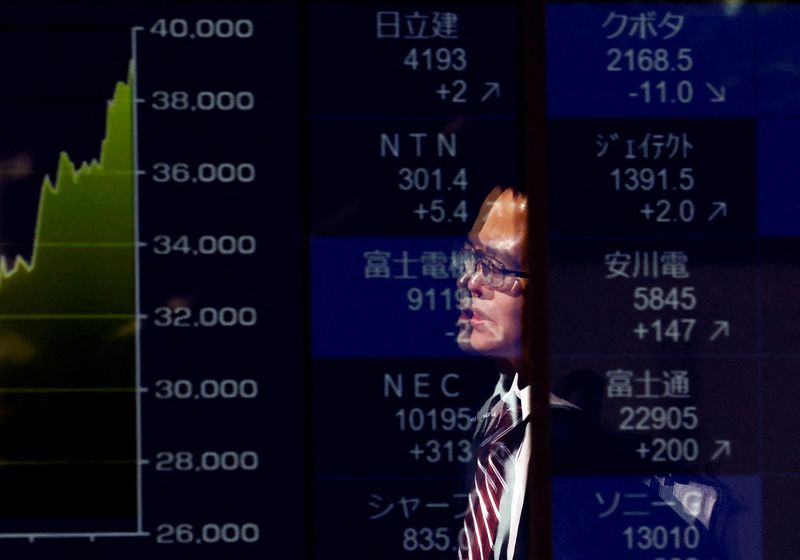(Reuters) - Japanese investors are hesitant to own their home stock markets despite the Nikkei's recent surge above bubble-era peaks because of uncertainty about sustained corporate returns and lingering memories of the 1990s market crash.
Instead, they are allocating more money to foreign equities, drawn by the promising outlook for U.S. stocks and its tech sector, and emerging economies such as India.
BY THE NUMBERS
According to Morningstar, Japanese equity funds focusing solely on domestic markets received only $1.2 billion in January, compared with an inflow of $7.8 billion into funds with a foreign investment focus.
Of this, U.S.-focused equity funds received $3.8 billion, while those targeting broader global equities secured $3.1 billion. Indian equity-focused funds saw an influx of $763 million in the same period.
WHY IT'S IMPORTANT
After a stellar rally, mainly fuelled by foreign investors, the local market needs a domestic bid to sustain its uptrend.
Japanese households hold about $7.7 trillion in cash and deposits, according to Bank of Japan data, which means they can have sizeable impact on the Nikkei. They hold just 13% of their assets in equities, significantly lower than 40% in the U.S. and 21% in Europe.
Japan's Nikkei index is retreating slowly from this week's record high after a year-long rally driven by cheap valuations, corporate reforms and investment flows diverted from a battered Chinese stock market.
KEY QUOTES:
"While foreign investors have shown significant interest in Japanese equities, institutional clients are seeking reassurance that Japanese individual investors are also actively buying their own market," said Wei Li, portfolio manager at BNP Paribas (OTC:BNPQY) Asset Management.
"To sustain positive momentum in Japan, it is crucial for household assets to shift away from deposits and towards equities, which the NISA program aims to facilitate."

NISA, or the Nippon Individual Savings Account, is a Japanese government tax-free stock investment programme for individuals, aiming to turn the trillions of yen held in cash by households into investments in stock markets.
"The strong performance of the Japanese market compared to global peers is expected to encourage individual investors to allocate more to their home market over time," Li said.